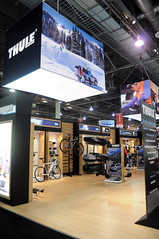Trends in Social Media 2012
The art of prognositcation is alive and well! There are hundreds, perhaps thousands, or bloggers, writers, authors, experts and consultants who bravely try and predict the future.
I’ve tried that a few times, and I’m usually so far off base that I’ve pretty much given up!
However, it’s eye-opening to see what others are predicting as far as trends in social media for the new year.
David Armano at the Harvard Business Review looks at number of areas, including the convergence of how social media will further integrate into ‘real life,’ showing how companies are using social media in almost automatic fashion to help participants post to their social media accounts to share what they’re doing. He elaborates on the Cult of Influence, Social TV, Social Sharing and much more.
Consultant, coach and speaker Jeff Bullas is bullish on the mobility of social media, search socialization, geo-targeting, social commerce and social gaming. Yeah, I know, I’m not into gaming on Facebook (or anywhere else for that matter), but it’s big business – and getting bigger.
Warren Knight agrees that social TV is trending bigger. He believes that social commerce will finally get serious, with reviews and recommendations carrying more weight and significance than ever.
Forbes Magazine’s Haydn Shaughnessy looks at social media from a more international perspective, touching on the growth of the ‘transmitter ecosystem,’ which has broken down barriers to creating online content:
“But another part of the story is that more channels create a larger need for content. Many millions of those people now active online are not, however, content producers. They are sharers and curators.”
Cheryl Burgess looks at 2012 trends and sees that 2/3 of all adult internet users now are using social media. As a result, businesses will increase their migration from social media to social business, trying to figure out along the way how it all works.
And finally, check out this info graphic from Social Commerce Today that looks at the timeline of social media and social commerce, along with some brief predictions for what’s coming in 2012.










